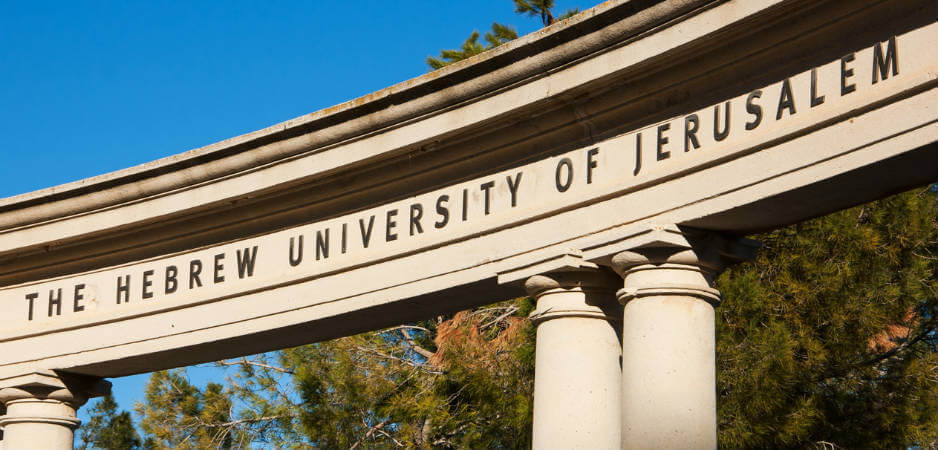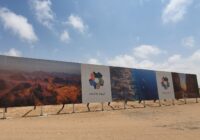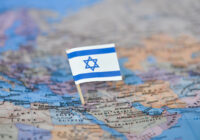Is BDS weakening the Palestinian struggle by censoring Israeli academia?
On March 15, a United Nations (UN) report confirmed that Israel’s policies in Palestine constitute an “apartheid regime” and supported the calls for boycott, divestment and sanctions (BDS) to end the status quo.
BDS is an international campaign calling for the implementation of economic, political, cultural and academic pressure on Israel to comply with international law and, more precisely, achieve three objectives: an end of the occupation and the colonization of Arab lands, complete equality for Arab-Palestinian citizens of Israel, and respect for Palestinian refugees’ right of return.
Such sanctions exerted on the international level by individuals, celebrities (such as Lauryn Hill), associations, universities and political parties would aim at Israeli goods produced in occupied territory (such as Soda Stream), a boycott of international companies present in Israel (such as G4S) and Israeli participation in international sporting events.
According to the BDS objectives, two main conceptions exist: the end of occupation and the end, because of its intrinsic racism, of the Zionist project.
Polemics have arisen around the debate questioning the link between anti-Zionism or anti-Semitism on the basis of such actions. Concerns have also been expressed about the campaign’s final objective, which can lead not only to the de-legitimization of Israeli policies toward the occupation, but the de-legitimization of the entire Israeli state. As the movement targets Israel as a whole — including institutions or companies that are not related to the occupation — this final aim of BDS is seen as anti-Semitic. It is notably based on the assumption that it is considered a crime in France to be pro-BDS as it is an act “inciting hate or discrimination.”
Among the many institutions and sectors that BDS targets, one sensitive question remains about the relevance of ending the academic relationship. It seems to be a lose-lose situation to cut bridges between academia by impeding one of the few structures dedicated to dialogue for peace.
Academics and Society
In every role that an academic faces, he or she creates outcomes that impact their immediate community as well as the broader society. The different roles an academic has to play are not necessarily coherent and often lead to a conflict of loyalties between knowledge as an independent discipline or as a tool for state viability and survival.
Members of academic institutions are protected by the liberty of academic freedom, which is defined by UNESCO as the “liberty of educational institutions to decide courses and research, and of teachers to teach subjects, without outside coercion.” The right to academic freedom is recognized in order to enable faculty members and students to carry on with their roles while enjoying basic security against repression, job loss, imprisonment or financial sanctions.
When describing the basic requisites of academic ethics, Edward Said explains that an intellectual’s role, particularly when the state is in crisis, should be as a counter-power to the political class. This role is a source of “instability, disagreement, discomfort, and non acceptance of the current realities. He must offer a different perspective, an unwillingness to tolerate that everyone else perceives as necessary and permanent.”
Words and beliefs of intellectuals, particularly in periods of crisis, play a fundamental role in tilting the balance one way or another. Despite Said’s views, others like Martin Kramer, director of the Dayan Center for Middle Eastern Studies at Tel Aviv University, defend the idea that academics should be focusing on creating material useful to the state. The logic behind this is that because the state mostly provides funds for encouraging universities to train students, it is in a position to ask for something in return. The concept of academic “duty” to the state leads to the consideration that scholars could betray it by providing knowledge challenging the existing ground rules. The consequences of such betrayal possibly expose academics to sanctions extending further than just criticism.
No Longer Welcome
Between the signing of the Oslo Accords in 1993 and the outbreak of the Second Intifada in 2000, hundreds of joint projects were held not only between Israel and Palestine, but also other neighboring Arab states. For instance, courses were taught by Palestinians at Israeli universities about Palestinian society, and Israeli lecturers visited areas under the authority of the Palestinian Authority (PA) to promote mutual understanding.
This optimistic period did not survive the outbreak of the Second Intifada in September 2000 — very few projects continued to operate, and some planned projects never got off the ground. Despite those examples of cooperation, the general context within both parties has been to avoid fostering relationships.
Internal factors such as peer pressure or self-censorship may explain the inclination of academics to follow an established consensus. Self-censorship that Israeli academics impose on themselves is also related to their dissociation from state policy matters. Israeli sociologist and critical theorist Yehuda Shenhav argues that the involvement of academics in fields that concern politics is a pure and simple act of usurpation exercised against the only legitimate power with authority to draft and negotiate a peace agreement with Palestinians: that is, the Israeli government.
This immunity toward criticism from the academia enjoyed by the Israeli government appears paradoxical. Indeed, it shows a limited conception of Israeli citizens’ political activity as well as of a restricted democracy.
As for the Palestinian side, and despite the fact that academic freedom is supposedly guaranteed by the Palestinian Basic Law, both internal and external factors restrict institutions and individuals from reaching real freedom. In the 1980s, the military governor of the West Bank and Gaza issued the Military Order 854 (MO854), a law subordinating Palestinian universities to regulations concerning student admissions, faculty recruitment, curricula, textbook control and supervision.
Palestinian academic freedom, understood by the Israeli military as the breeding ground of Palestinian nationalism, issued MO854 for “Suppressing that genre of breed, or at least containing it.” The order, regarded as a primarily political imperative, constrained academic freedom from blooming into “a potentially existential threat” — the demand for an independent nation state.
Academic Restrictions
Such obstacles are also established within and upon Palestinian society. The PA, controlled by the Fatah political party, notably acts to keep control over the sovereignty of the so-called Palestinian leadership through academic restrictions: Gazan students being restricted from reaching West Bank universities, with PA informers controlling teacher discourse.
One famous case concerns Mousa al-Budeiri, a professor at Birzeit University, who was accused of “insulting Islam” after hanging two cartoons on his office door. He was attacked by the Awareness Bloc, the student arm of the Islamic Liberation Party (Hizb al-Tahrir), which later demanded the teacher’s expulsion. The university did not show support and succumbed to Hizb al-Tahrir requests.
The PA’s will to annihilate alternative narratives in universities (and most notably the Hamas narrative) even reached material destruction when, in 2006, PA security officers destroyed the computer lab of the Hamas-affiliated Islamic University of Gaza.
Limits to Academic Freedom
Several points have arisen against the BDS of Israeli academic institutions. Among those points is the assumption that Israeli academics are the vanguard of Israeli society against the occupation. Israeli academia, as an independent opposition power enjoying full academic freedom, contributes to the mutual understanding and communication between both sides.
As Professor Izhak Schnell argues: “Research universities in Israel are public. The academic freedom is secured since the government has no control on the universities. We get permanent jobs in a way that our positions cannot be threatened … I believe that Israeli academia is the most critical academia in the world including Western ones.”
To ensure academic freedom, public money is given to an organization controlled by universities themselves: the VATAT. A Hebrew acronym for Planning and Budgeting Committee of the Council for Higher Education, VATAT’s governing body is an independent committee of seven members dedicated to ensuring academic freedom, meeting monthly to decide how to distribute funds to universities.
On the other hand, and even if government funding would mean academic freedom, numerous Israeli academic institutions are funded by private organizations. “In theory,” Professor Elie Podeh affirms, “the privatization of Israeli academia should lead to greater freedom, as these institutions are not being funded by the government.”
Many fail-safe measures are implemented to allow academic freedom in Israel. To that regard, universities are powerful tools for peace, understanding and communication between Israeli and Palestinian society. A boycott of such institutions would lower the odds for true peace and Palestinian self-determination, thus putting the legitimacy of BDS in doubt.
Privatization and Discrimination
Even though privatization diminishes the influence of the state on cultural institutions, it may still represent an obstacle to academic freedom. Indeed, two concepts of academic freedom are to be distinguished. On the one hand, education is a public good and academic freedom allows for the increase of access and production of knowledge for all. On the other hand is the neoliberal conception establishing knowledge as a commodity — education as a service to be privatized and academic freedom as the ability to market knowledge and educational services without government regulation.
There are two key points here.
First, privatization may affect the quality of education and control over academic decisions, as managers would be able to change academic standards. Textbooks may be imposed on faculties and curricula may change with profit-oriented considerations.
Second, privatization could threaten intellectual propriety and job security, as knowledge would become a commodity among a university’s many financial interests. This management of knowledge could lead to low morale among academics.
While Palestinian citizens of Israel constitute more than 20% of the country’s population, only 9.5% of BA students, 4.8% of MA students, 3.2% of PhD students and a mere 1% of the academic staff in Israeli academic institutions are Palestinians. Palestinian applicants are three times more likely to be rejected by Israeli academic institutions than their Jewish counterparts. Such discrimination against Palestinians is rampant at Israel’s universities. In 2009, Carmel College caused an uproar when a recorded conversations between officials confirmed that an entire department was closed because too many Palestinian students had enlisted for study there.
Such actions against Palestinians and, on a broader spectrum, individuals that could at some point raise arguments challenging Israeli policies are relatively rare. Discrimination is usually perpetuated through more latent means.
Freedom of expression is recognized by Israeli academics but not necessarily implemented. Events on Israeli campuses betray the national feeling and sensibility over academic notions of universality. When MA graduate Eyal Rosenberg refused to sing the national anthem during a graduation ceremony at Technion University, he later received an official letter from the dean warning him not to attend the next ceremony. Ali Baher, a Palestinian citizen and head of the Hebrew University’s Arab Students, refused during the 2008 visit of Shimon Peres to shake the president’s hand and called him a “murderer of children.” Baher was apprehended and detained for more than three hours, his student card confiscated and he was sent to a disciplinary committee.
Militarization of the Academic Sphere
As a consequence of the occupation, jobs related to security domains — from restaurant security guards to large checkpoint supervisors — have tended to multiply among Israeli society as well as being increasingly privatized. This has led private universities to suppress entire fields of knowledge to only focus on training more security officers. On the other hand, the elite also has the opportunity, given its connections with Israeli security agencies, to attend university training for security in prestigious institutes, no matter their field of study.
For example, Tel Aviv University and Hebrew University are in charge of the academic side of Israel’s Army Command and Staff College (PUM), and Zefat College has an exclusive academic program for training members of the Israeli General Security Services. Wingate Institute, a fitness and sport establishment, acts as part of the army training facilities.
However, the relationship Israeli universities have with the military does not only represent an easy avenue for students to enter military institutions. This relationship between those two supposedly independent pillars of society is far more entangled with Israel’s military sharing partnerships, investments and, in some cases, directly controlling Israeli academic institutions.
The Ben Gurion University of Negev (BGU), for instance, actively collaborates with the military establishment of Israel and, therefore, it can be implicated in the occupation and apartheid practices related to violations of human rights.
The silence of Israeli academics on the Palestinian issue translates into reducing democracy to its absolute minimum: periodic representative elections.
BGU is partly founded by the Israel Defense Forces (IDF) for its Research and Development Authority. After Operation Cast Lead, which resulted in over 1,400 Palestinian deaths in 2008-09 through acts defined by Judge Richard Goldstone as war crimes, BGU offered scholarships and extra tuition to students who served in active combat units. It also offered a special grant for each day of service to students who went on reserve duty, in addition to other benefits.
Along with rewarding Israeli citizens identified as fighters, BGU conducts technological research and development on vehicles and autonomous robotic systems classified with “potential military application.” The transfer of knowledge between BGU and the military goes beyond robots and vehicles destined for rescue and transport missions.
Ben Gurion University has an ongoing partnership with Rafael Advanced Defense Systems Ltd., an Israeli company that develops and produces state-of-the-art armaments for the IDF and Israel’s defense system. This partnership involves sharing research projects and technology as well as engaging in joint ventures.
Finally, this military impact and influence is translated into much more than facilities used for security courses. The Israeli mainstream’s refusal to face the legal and moral aspects of the wars and Palestinian subjugation has led to the belief that high-ranking officers have a moral high ground.
Numerous Israeli universities, therefore, accept those officers in their ranks without any regard for the structural and moral issues it creates. For example, Carmis Gillons, vice president for external affairs at the Hebrew University, served as director of the General Security Services — an organization notorious for being accused by several human rights organizations of committing war crimes.
BDS in Academia
When arguing over the legitimacy of BDS toward the Israeli academic sphere, it is true that some academics have, notably during the intermediary Oslo agreement but also still today, acted upon their commitment to serve and promote knowledge and narratives regardless of the political situation. They have contributed to a reconciliation path potentially leading to an improvement of the situation for both Palestinian and Israeli societies.
The main argument against the boycott of Israeli academia is the assumption that the former is independent from the ruling power. The truth is that the shadow of militarization — and therefore occupation — of Palestinian land spreads far beyond the Israeli army institutions. As it reaches academia, one of the most vital institutions allowing a vivid democratic society is corrupted. Controlled by the military, the academic precaution against totalitarianism has been twisted so as to impede critical voices other than the ruling ones to be heard in the public space.
Academic institutions are not fulfilling the fundamental role of countering, when necessary, the political elite’s legitimacy narratives. On the contrary, such institutions are actually deepening, under the mask of independence, the influence of the army within Israeli society.
BDS against academics is a reaction to an already-implemented boycott by the Israeli ruling authorities. The only difference here is that the domestic boycott is latent and aimed at continuing the annexation and occupation of Palestinian land. It is fundamental to tackle this nationalistic machine that will continue to foster the aversion and alienation toward the Palestinian people, thus providing justification for their destruction.
The academic sphere is a fundamental opposition challenging the government’s ability to manipulate public opinion. The role of academics and intellectuals is to provide individuals with new perspectives aimed at improving the society in which they live, even if those general improvements stand against the particular interests of the political leadership.
The silence of Israeli academics on the Palestinian issue translates into reducing democracy to its absolute minimum: periodic representative elections.
Never should partial freedom be considered as freedom. As a pillar of any democratic state, academic freedom can only exist if guaranteed to all and any subject. Otherwise it does not actually exist.
The views expressed in this article are the author’s own and do not necessarily reflect Fair Observer’s editorial policy.
Photo Credit: Elena Dijour
Support Fair Observer
We rely on your support for our independence, diversity and quality.
For more than 10 years, Fair Observer has been free, fair and independent. No billionaire owns us, no advertisers control us. We are a reader-supported nonprofit. Unlike many other publications, we keep our content free for readers regardless of where they live or whether they can afford to pay. We have no paywalls and no ads.
In the post-truth era of fake news, echo chambers and filter bubbles, we publish a plurality of perspectives from around the world. Anyone can publish with us, but everyone goes through a rigorous editorial process. So, you get fact-checked, well-reasoned content instead of noise.
We publish 2,500+ voices from 90+ countries. We also conduct education and training programs
on subjects ranging from digital media and journalism to writing and critical thinking. This
doesn’t come cheap. Servers, editors, trainers and web developers cost
money.
Please consider supporting us on a regular basis as a recurring donor or a
sustaining member.
Will you support FO’s journalism?
We rely on your support for our independence, diversity and quality.







